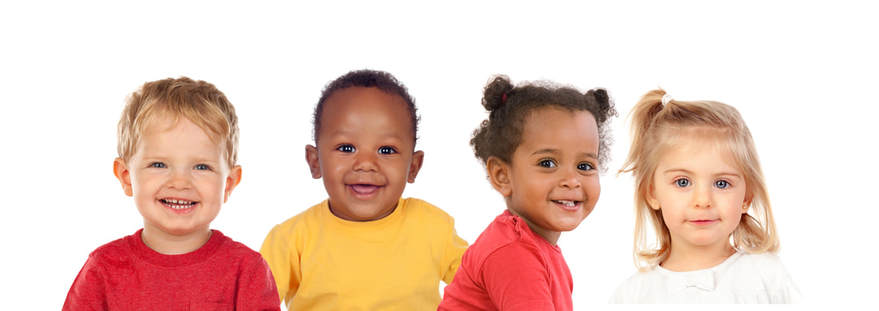Toddler Social Development |
Page 12 |
Social skills need to be modeled, repeated, supported and encouraged, a process similar to what is needed for children’s language acquisition or for development of physical skills. Children under the age of two or three are egocentric and have very few prosocial skills, especially with their peers. Toddlers rarely share, wait, or take turns! This is the age of “mine–mine–mine,” and “I want what I want when I want it!” and curious exploration. When toddlers play with other peers they usually engage in what is called “parallel play.” That is children are playing next to each other but are not initiating interactions with each other and they are probably unaware of what each other is doing because they are so absorbed in their own discoveries.
While this is normal developmental play for this age, you can still begin social teaching with toddlers. For social skills such as sharing, asking, being polite, listening, waiting, and taking turns are determined both by a child’s developmental abilities and temperament as well as by the coaching a child receives from interactions with adults. You can begin to encourage children to learn appropriate social skills by modeling, prompting, practicing, and praising specific social skills.
Toddlers’ speech is developing rapidly. They are learning up to nine new words a day. You should listen carefully and with interest to what toddlers have to say, repeating and expanding their messages. Even though they might not yet be talking, they are collecting and storing words and learning their meanings. They need caregivers who talk to them and interact with them, sing, tell rhymes and fingerplays, and read to them. This not only encourages bonding and positive social interactions, but it also lays the groundwork for learning to read and write and for later school success.
To meet the social needs of toddlers, make sure you:
- Talk, sing, and play with each child daily on a one-to-one basis and in small groups
- Respond and expand upon emergent language coming from the child
- Interpret their actions to other children to help them get along in the group (“Gloria had it first. Would you like this one?”)
- Show toddlers how to clean up after themselves
- Assist toddlers in social interactions (“Tyrell is playing with the blue ball; let’s play with the red one until he is finished.”)
- Step in quickly when there are disputes to provide information, solve problems, or redirect children to new activities
- Display the play materials down low to encourage the development of independence and competence
- Model taking turns (make sure you provide more than one of many play materials and equipment)
Course Navigation Menu
|
|



